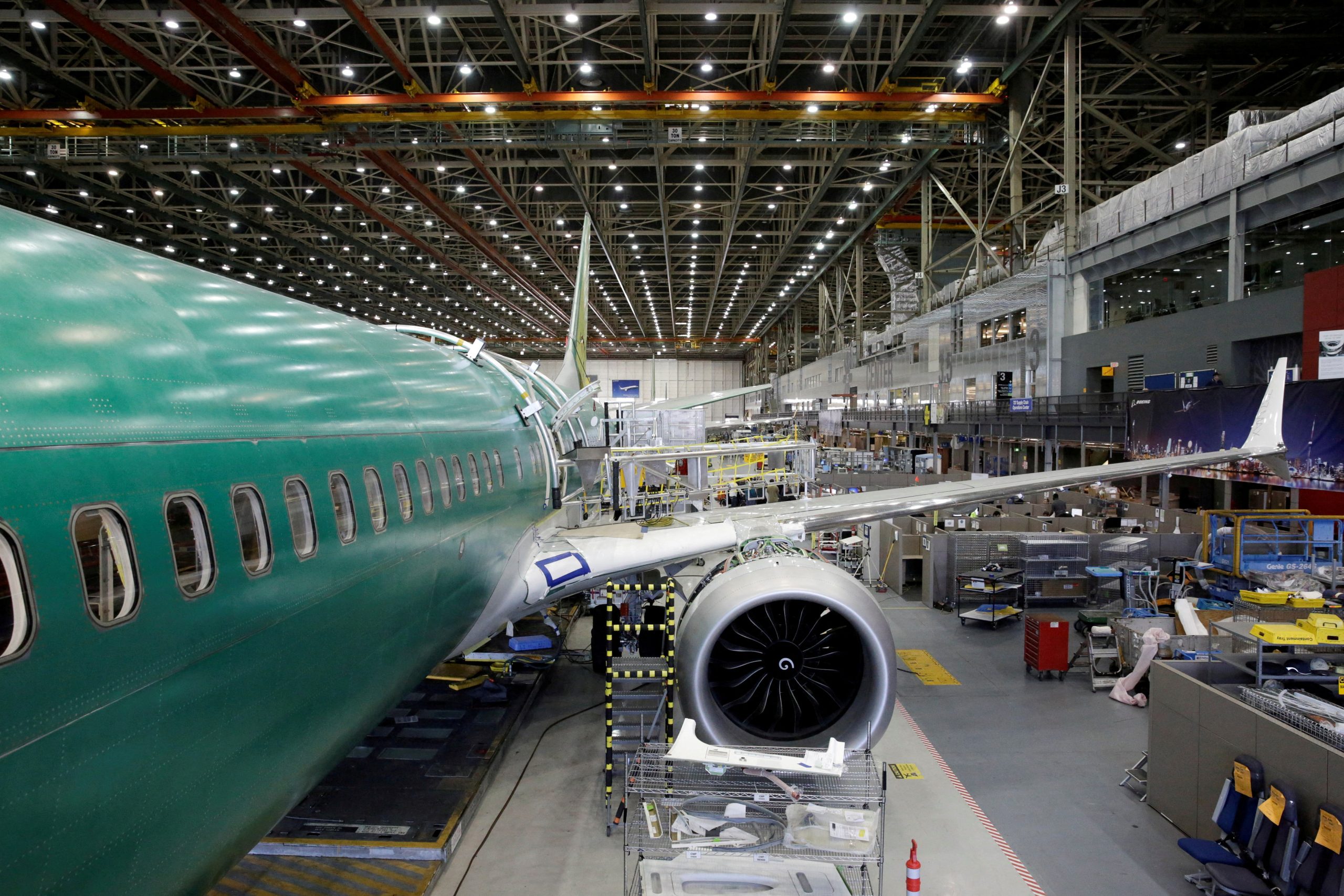Tech
The Evolution of AI

From the early beginnings of artificial intelligence (AI) to its current state, the evolution of this groundbreaking technology has been nothing short of remarkable. With the ability to simulate human intelligence and undertake complex tasks, AI has revolutionised various industries, from healthcare to finance to transportation.
Over the years, AI has gone through significant advancements that have led to its integration into our daily lives. With machine learning techniques, AI has the capability to understand, learn, and adapt, making it a powerful tool for problem-solving and decision-making.
Historical Milestones in AI Development
The history of AI dates back to the 1950s when researchers started exploring the concept of creating machines that could mimic human intelligence. One of the first significant milestones in AI development was the introduction of simple rule-based systems. These systems relied on predefined rules to solve problems and make decisions.
In the 1980s, AI experienced a major breakthrough with the development of expert systems. These systems were designed to capture the knowledge and expertise of human experts in specific domains. Expert systems paved the way for AI to be applied in various industries, such as healthcare, where they were used to diagnose diseases and recommend treatment options.
In the 1990s, machine learning emerged as a powerful AI technique. This approach allowed machines to learn from data and improve their performance over time. The introduction of algorithms such as decision trees and neural networks enabled AI systems to make more accurate predictions and classifications.
Types of AI: Narrow vs. General AI
AI can be classified into two main categories: narrow AI and general AI. Narrow AI refers to AI systems that are designed to perform specific tasks or solve specific problems. These systems excel at their intended tasks but have limited capabilities outside of their domain.
On the other hand, general AI refers to AI systems that possess human-level intelligence and are capable of performing any intellectual task that a human being can do. General AI is still largely a concept and has not been fully realized. However, researchers continue to work towards developing AI systems that can exhibit a broader range of cognitive abilities.
Impact of AI on Industries
AI has had a profound impact on various industries, transforming the way businesses operate and making processes more efficient. In the healthcare industry, AI is being used to analyse medical images, diagnose diseases, and assist in surgical procedures. AI-powered virtual assistants are also being deployed in hospitals to improve patient care and streamline administrative tasks.
The finance industry has also embraced AI, using it to automate financial transactions, detect fraud, and make investment decisions. AI algorithms can analyze large amounts of financial data and identify patterns that humans may miss, leading to more accurate predictions and better investment strategies.
Transportation is another sector that has been revolutionized by AI.
Self-driving cars, powered by AI, are becoming a reality, promising safer and more efficient transportation. AI is also being used in logistics and supply chain management to optimize routes, reduce delivery times, and minimize costs.
AI Applications in Daily Life
AI has become an integral part of our daily lives, often without us even realizing it. Intelligent virtual assistants, such as Siri and Alexa, rely on AI algorithms to understand and respond to our voice commands. These assistants can perform a wide range of tasks, from setting reminders and playing music to answering questions and providing recommendations.
AI is also prevalent in the entertainment industry. Streaming platforms like Netflix and Spotify use AI algorithms to analyze user preferences and recommend personalized content. Social media platforms employ AI to curate newsfeeds and detect and remove inappropriate content.
In the realm of e-commerce, AI-powered recommendation systems are used to suggest products based on user behavior and preferences. This personalized approach enhances the shopping experience and increases customer satisfaction.
Ethical Considerations in AI Development
As AI continues to advance, ethical considerations become increasingly important. AI systems are only as good as the data they are trained on, and biases in the training data can lead to discriminatory outcomes. It is crucial to ensure that AI algorithms are fair, transparent, and free from bias to prevent unintended consequences.
Privacy is another ethical concern in AI development. AI systems often process large amounts of personal data, raising questions about data security and protection. Striking a balance between using data to improve AI capabilities and respecting individuals’ privacy rights is a challenge that needs to be addressed.
Challenges in AI Implementation
While AI holds immense potential, there are challenges that need to be overcome for its successful implementation. One of the key challenges is the lack of explainability. Deep learning algorithms, which are at the forefront of AI development, are often considered black boxes, making it difficult to understand how they arrive at their decisions. This lack of transparency hinders trust and acceptance of AI systems.
Another challenge is the need for continuous learning. AI algorithms require vast amounts of data to learn and improve their performance. However, this presents a challenge in industries where data is scarce or difficult to obtain. Finding ways to overcome data limitations and ensure ongoing learning is crucial for the success of AI applications.
Future Trends in AI
The future of AI holds exciting possibilities. One trend that is expected to shape the future of AI is the convergence of AI with other technologies, such as robotics and the Internet of Things (IoT). This convergence will enable AI systems to interact with the physical world in more meaningful ways, opening up new opportunities across industries.
Advancements in natural language processing and understanding will also be a significant trend in AI. As AI systems become better at understanding and generating human-like language, communication with machines will become more seamless and intuitive. This will further enhance the capabilities of virtual assistants and improve human-computer interaction.
AI and the Job Market
The rise of AI has led to concerns about job automation and its impact on the workforce. While AI has the potential to automate certain tasks, it also creates new job opportunities. As AI systems take over repetitive and mundane tasks, humans can focus on more creative and complex tasks that require human ingenuity and problem-solving skills.
However, the transition to an AI-driven job market requires upskilling and reskilling of the workforce. Developing skills that complement AI technology, such as critical thinking, creativity, and emotional intelligence, will be crucial in ensuring that humans remain valuable contributors in the age of AI.
The Future of AI
The evolution of AI has been a journey of remarkable advancements and breakthroughs. From simple rule-based systems to complex deep learning algorithms, AI has transformed industries and our daily lives. The future of AI holds immense possibilities, but it also comes with ethical considerations and challenges that need to be addressed.
As AI continues to evolve, it is crucial to strike a balance between technological progress and human values. Ensuring fairness, transparency, and privacy in AI systems will be essential in building trust and acceptance. By harnessing the power of AI while upholding ethical standards, we can unlock the full potential of this groundbreaking technology and shape a future where humans and AI coexist harmoniously.
Business
Boeing mulls shedding Airbus work in potential Spirit Aero deal

Boeing (BA.N)is looking at how Spirit AeroSystems (SPR.N) could shed or sharply reduce its ties to Airbus (AIR.PA), as the supply-chain giant’s work for the European planemaker poses complications in rival Boeing’s attempt to acquire its former subsidiary.
The U.S. planemaker is exploring offloading or redeploying specific Spirit businesses that supply key Airbus components if it reaches a deal, according to sources familiar with the matter.
Boeing (BA.N), is looking at how Spirit AeroSystems (SPR.N) could shed or sharply reduce its ties to Airbus (AIR.PA) as the supply-chain giant’s work for the European planemaker poses complications in rival Boeing’s attempt to acquire its former subsidiary.
The U.S. planemaker is exploring offloading or redeploying specific Spirit businesses that supply key Airbus components if it reaches a deal, according to sources familiar with the matter.
Boeing is also fine-tuning a defensive strategy in case European regulators take issue with Airbus relying on its main rival for key components in its supply chain, some of which are custom-made using proprietary design and technology.
The Airbus business generated a fifth of Spirit Aero’s revenue in 2023, making it sizeable enough to factor in to a potential deal, though Boeing could complete a Spirit purchase without a sale of those businesses.
However, Boeing does not want to own Spirit Aero’s Airbus business, which includes wing-making for the small A220 jet in Belfast, Northern Ireland that loses money, the sources said.
The four sources requested anonymity because the deliberations are confidential.
Spirit, which has a market value of close to $3.8 billion, has already held exploratory talks with Airbus about selling the plant, Reuters reported this month.
It is unclear how receptive Airbus might be to taking over Spirit operations. While its options to block a sale of Spirit to Boeing outright are limited, Airbus has significant lobbying power with European governments and could try to force Boeing to buy its way out of Spirit’s Airbus contracts, the sources said.
“There are very active conversations but no clear road map,” one of the sources said, adding that Airbus was studying all options.
Airbus and Boeing both declined comment.
Boeing has also been looking at whether other companies may be interested in Spirit’s Airbus business, the sources said. It was not immediately clear if any interested party has emerged.
Spirit Aero spokesman Joe Buccino said the company is committed to acting in the best interests of customers, employees and shareholders. “As commercial negotiations with Airbus continue, many options remain viable,” Buccino said, without elaborating.
PRODUCTION ISSUES
Boeing would gain more control of its production by buying back Spirit, but could have to pay large sums to buy its way out of contracts.
Spirit makes a key fuselage section and wing spars for the Airbus A350 wide-body jet at its Kinston plant in North Carolina, and wing parts for Airbus at Prestwick in Scotland.
“The Airbus A350 composite technology is sensitive because Airbus wouldn’t want a rival in charge of important pieces in their production,” aerospace analyst Richard Aboulafia said.
Spirit’s backlog at the end of the fourth quarter of 2023 was approximately $49 billion, which includes work packages on all commercial platforms in the Airbus and Boeing backlog.
According to its latest annual report, 19% of Spirit Aero’s revenue derives from Airbus projects, up from 10% in 2013.
Spirit also has been trying to secure better prices from Airbus, at a time when the European planemaker is looking for some supplier price cuts.
Without better prices, Spirit could lose more than $400 million annually while supplying Airbus with parts for its A220 and A350 aircraft in the coming years, TD Cowen analysts said.
“We don’t see a Boeing-Spirit deal until Spirit’s pricing issue on the A220 has been sorted out and there is clarity on what happens to the rest of the Airbus work,” they wrote earlier this month.
© Reuters
Business
Aston Martin delays first electric car as losses narrow

Aston Martin (AML.L) is delaying the launch of its first electric car because of a lack of consumer demand, it said on Wednesday, as record prices for its luxury and special edition models helped the British carmaker shrink annual losses.
Aston Martin is now targeting the launch of its battery electric vehicle (BEV) in 2026, a year later than planned – becoming the latest automaker to push back electrification goals as investment in capacity and technology has outpaced EV demand.
“The consumer demand (for BEVs), certainly at an Aston Martin price point, is not what we thought it was going to be two years ago,” Executive Chairman Lawrence Stroll told journalists.
Stroll said there was “much more driven demand” for plug-in hybrid vehicles, especially for a company like Aston Martin, as people “want some electrification … but (to) still have the sports car smell and feel and noise”.
Aston Martin’s first hybrid supercar, Valhalla, is on course to enter production this year.
The company’s annual pretax losses more than halved in 2023, coming in smaller than market expectations, after selling prices reached record levels as it delivered its Valkyrie models and other special edition cars.
Mercedes-Benz earlier this month delayed its electrification goal by five years and assured investors it would keep sprucing up its combustion engine models.
Last June, Aston Martin signed a supply agreement with Saudi Arabia-backed Lucid Group (LCID.O), to bolster its electrification strategy.
Stroll, who played down concerns about competition from Chinese EV maker BYD , added he was happy with the battery technology and platforms available to the company.
PIVOT
Fictional secret agent James Bond’s car brand of choice, Aston Martin has had a tough time since its market debut in 2018.
However, top shareholder Stroll has been trying to bolster its cash and margins by rolling out next-generation sports cars – the latest of which was the new Vantage sports model unveiled this month.
The carmaker’s shares were down 2% at 1047 GMT as investors fretted about its cash flow and volumes.
Aston Martin had hoped to turn free cash flow positive in the fourth quarter, but was hit by the timing of deliveries of its DB12 and Valour models.
It now expects positive cash generation in the second half of this year.
“Aston Martin is pumping reams of cash into marketing in a bid to help position itself at the ultra-luxury end of the spectrum. This pivot was never going to come cheap,” said Hargreaves analyst Sophie Lund-Yates.
Aston Martin reported an adjusted pretax loss of 171.8 million pounds ($217.4 million) for the year ended Dec. 31, compared with a 451 million pounds loss a year earlier.
Analysts, on average, expected a loss of 209 million pounds, according to a company-compiled consensus.
The company kept its near- and medium-term forecasts unchanged.
© Reuters
Business
Meta CEO Zuckerberg meets Japan PM Kishida in Tokyo to discuss AI

Meta Platforms (META.O) Chief Executive Mark Zuckerberg discussed artificial intelligence issues with Japanese Prime Minister Fumio Kishida on Tuesday during the Facebook founder’s trip through Asia.
“We had a good, productive conversation about AI and the future of technology,” Zuckerberg said in brief comments to reporters at the prime minister’s residence in Tokyo. He left without taking questions.
The meeting followed reports that Zuckerberg would visit South Korea at the end of this month to discuss AI with Samsung Electronics (005930.KS) chairman, Jay Y. Lee, and possibly meet South Korean President Yoon Suk Yeol.
Meta, the operator of Facebook, last week confirmed Zuckerberg was planning to visit South Korea.
Japan’s government and corporate sector are racing to catch up in AI development. In the past year, Kishida has met with OpenAI CEO Sam Altman and Nvidia (NVDA.O) CEO Jensen Huang to discuss AI regulation and infrastructure.
© Reuters
Business
Vodacom has been ordered to pay Please Call Me idea-man R29 billion — minimum

South Africa’s Supreme Court of Appeal has ordered Vodacom to pay Kenneth Nkosana Makate a minimum of R29 billion for his Please Call Me idea.
Court documents, which MyBroadband has seen, show that the Supreme Court has essentially ordered Vodacom to pay Makate between R28.99 billion and R55.37 billion.
This is much higher than previous assumptions that were based on Makate’s earlier statements and High Court filings.
The exact wording of the Supreme Court ruling was as follows:
“The applicant is entitled to be paid 5%–7.5% of the total revenue of the [Please Call Me] product from March 2001 to date of judgment by the Second Respondent, together with the Mora Interest thereon, alternatively interest in terms of Section 2A(5) of the Prescribed Rate of Interest Act,” the order stated.
It continued: “…the total revenue of the PCM product shall be that set out in Model 9A, 9B & 9BB submitted to the First Respondent by the Applicant (Annexure ‘NM30’–‘NM32’ to the Supplementary Founding Affidavit)”.
MyBroadband obtained these annexures and summarised the compensation Makate’s models arrived at.
Models 9B and 9BB were pretty straightforward as the final compensation based on 5%, 7.5%, and 15% revenue share were tabulated according to Mora Interest, compound interest, and Special Interest.
These models make certain assumptions about the number of Please Call Me messages sent over 18 years, their success rate, the average call duration, and the average call revenue.
The models then arrive at a total call revenue generated by Please Call Me of R194.8 billion over 18 years.
Model 9A was trickier to analyse as it assumed 15% revenue share and didn’t break down the final compensation by Mora Interest and Special Interest.
However, it provided a sub-total of estimated call revenue generated by Call Me messages that was close to Model 9B/9BB — R196.84 billion.
It then adds Please Call Me advertising revenue, “Recharge Me” revenue, and an additional estimate of how much it generated outside South Africa.
Under Model 9A, the total Please Call Me revenue comes to R273.39 billion. 5% of this came close to the 7.5% revenue share amounts in Model 9B/9BB, allowing us to expand our analysis using amounts already accepted by the Court.
The table below summarises how much the Supreme Court effectively ordered Vodacom to pay in its ruling handed down on 6 February 2024.
Vodacom has said it will challenge the Supreme Court’s ruling in the Constitutional Court.
Compensation / Revenue share Model 9A Model 9A
(call revenue only)Model 9B/9BB 5% revenue share with Mora Interest ~R43 billion ~R30 billion R28.99 billion 5% revenue share with Special Interest ~R55 billion ~R37 billion R36.91 billion 7.5% revenue share with Mora Interest N/A
(Over R55 billion)~R44 billion R43.48 billion 7.5% revenue share with Special Interest N/A
(Over R55 billion)R55+ billion R55.37 billion The amounts above are based on those provided by Makate’s legal team and accepted by the Supreme Court.
© My Broadband










You must be logged in to post a comment Login